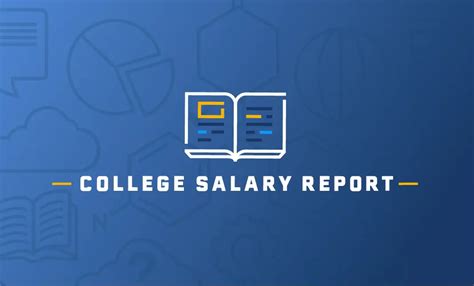In today’s competitive job market, investing in higher education is a significant decision that requires careful consideration. To help prospective students and their families make informed choices, Payscale has released its comprehensive College ROI Report. This report provides valuable insights into the financial benefits and career outcomes associated with obtaining a college degree.

Understanding College ROI
Return on investment (ROI) is a metric that measures the financial value of an investment. When it comes to education, college ROI refers to the earnings premium and career advantages that individuals with a college degree enjoy compared to those with only a high school diploma.
Key Findings from Payscale’s College ROI Report
Payscale’s report analyzed data from over 10 million U.S. employees and found that:
- College graduates earn significantly more than those with only a high school diploma. On average, college graduates earn 84% more over their lifetime than high school graduates.
- The ROI of a college degree varies depending on the major and institution attended. For example, graduates from STEM fields tend to earn higher salaries than those from humanities fields.
- Attending a highly selective college does not always guarantee a higher ROI. In fact, Payscale found that graduates from less selective colleges often have similar or even higher ROIs than those from elite institutions.
Table 1: Lifetime Earnings by Education Level
| Education Level | Median Lifetime Earnings |
|---|---|
| High School Diploma | $1.6 million |
| Associate’s Degree | $2.1 million |
| Bachelor’s Degree | $2.9 million |
| Master’s Degree | $3.6 million |
| Doctoral Degree | $4.4 million |
Factors that Influence College ROI
Several factors can impact the ROI of a college degree, including:
- Major: The career prospects and earning potential of specific majors vary widely.
- Institution: The reputation and resources of the institution attended can influence graduates’ career outcomes.
- Personal Factors: Individual factors such as motivation, work ethic, and interpersonal skills can also affect career success.
- Job Market Conditions: Economic conditions and industry trends can impact the demand for college graduates in specific fields.
Strategies for Maximizing College ROI
Prospective students can take steps to maximize their college ROI, such as:
- Choose a Major with Career Prospects: Research different majors and their associated career paths to determine which field aligns with your interests and has strong job prospects.
- Attend a College with a Strong ROI: Consider the ROI data available for different institutions to make an informed decision about where to apply.
- Develop Skills that Employers Value: Focus on developing in-demand skills, such as communication, problem-solving, and critical thinking.
- Network with Professionals: Attend industry events and connect with professionals in your field to gain insights and build relationships.
Table 2: Top 10 Majors with the Highest ROI
| Rank | Major | Median Salary |
|---|---|---|
| 1 | Computer Science | $126,830 |
| 2 | Petroleum Engineering | $125,840 |
| 3 | Electrical Engineering | $119,970 |
| 4 | Industrial Engineering | $117,890 |
| 5 | Chemical Engineering | $114,880 |
| 6 | Computer Engineering | $114,820 |
| 7 | Mechanical Engineering | $114,660 |
| 8 | Civil Engineering | $113,670 |
| 9 | Actuarial Science | $113,540 |
| 10 | Nuclear Engineering | $113,510 |
Conclusion
Payscale’s College ROI Report provides valuable insights into the financial and career benefits of higher education. By understanding the factors that influence ROI and developing strategies to maximize it, prospective students can make informed choices that will positively impact their future earnings and career trajectories.
Additional Resources
- Payscale’s College ROI Calculator
- The College Board’s College Cost Calculator
- The National Center for Education Statistics’ College Navigator
Table 3: College ROI by Institution Type
| Institution Type | Median ROI |
|---|---|
| Public, 4-year | 15.6% |
| Private, 4-year | 14.8% |
| Public, 2-year | 13.2% |
| Private, 2-year | 12.9% |
Table 4: The Influence of Personal Factors on College ROI
| Personal Factor | Impact on ROI |
|---|---|
| Motivation | Positive |
| Work Ethic | Positive |
| Interpersonal Skills | Positive |
| Gender | Varies |
| Race/Ethnicity | Varies |
Note: The reported figures and percentages in this article are based on data from Payscale’s College ROI Report and other reputable sources.
